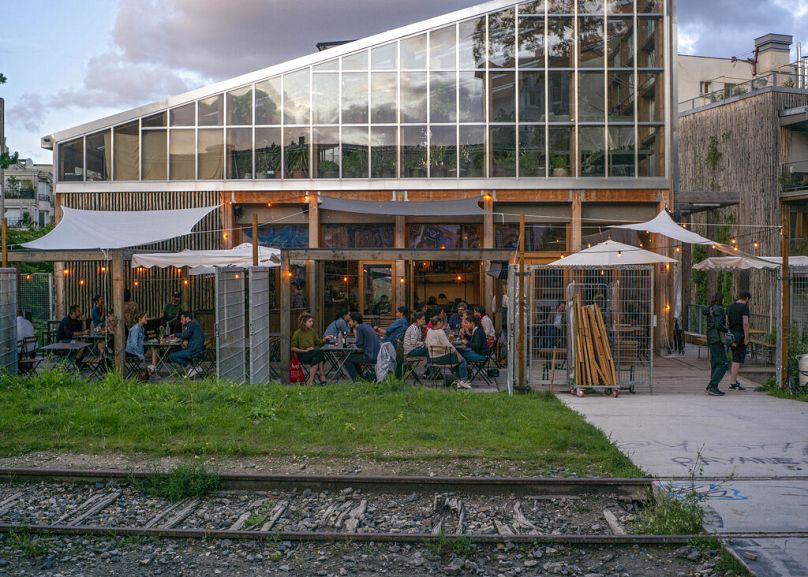This is a singular opportunity to pivot from growth at any cost towards the goals of individual well-being and environmental health, John Erik Meyer writes.
The Black Plague killed nearly 50% of the population of England. As the population recovered, many impacts of the disaster faded.
However, one social structure change — the doubling of real wages for labourers — was permanent.
Why? The shortage of peasant labour to meet landowner demand, plus the fallowing of the least productive fields, increased productivity and supported higher wages.
Today, in developed countries, we are facing another once-in-a-society structural shift in wages.
After years of stagnation and decline, real wage rates for labour are poised to go up relative to the incomes of the wealthy, who have benefitted immensely from the growth of the money economy.
Social cohesion fractured
In the 1960s, Western countries swallowed the commercial economics opium of fast market growth through consumerism, debt and population expansion.
They abandoned nation-building, focusing on improving the productive capabilities of their goods-producing sectors and increasing the skills and productivity of their workforces.
Globalism shifted many of the most productive jobs out of developed countries and replaced these economic old-growth forests with the scrub of retail, service and fast-food businesses.
That a sizable portion of a rapidly growing population could not get out of the poverty trap of low productivity, low wages and increasing rents didn’t penetrate the consciousness of a society obsessed with ever-greater GDP.
Structural change is at hand
The colonisation of the Americas allowed us to throw enormous amounts of cheap labour and abundant resources into the juggernaut of growth, which produced impressive social advances for several centuries.
But now, the environmental decline has become very obvious while social progress has begun to reverse. Growth no longer equals progress as it once did.
In 2023, staff shortages are putting tremendous pressure on business models formulated in an ocean of cheap labour.
But caught in the vice of mountainous debt and rising food, housing and energy costs, workers increasingly want to pick their spots. Workers have always wanted more than low pay and poor conditions, and now their ambitions are being aided by a demographic tectonic shift.
The transition to a stable population began in the 1600s as life expectancies began to increase and the number of children per family began to decline.
An inherent aspect of the transition to a stable and, perhaps, declining population is that the proportion of old people increases. Permanently.
Ageing: the great re-equaliser
Ageing is a worldwide phenomenon, and it can’t be countered by immigration or increased fertility rates since this would mean a population growing at an ever-increasing rate forever.
This fact, and the impacts of ageing, must be addressed with a proactive policy because the implications for society are profound.
Any attempt to maintain the growth in population and consumption of the 1950s and 60s will result in a more rapid environmental and social decline.
With the rise of the money economy over the past five decades, wealth has flowed from the young and productive to the older and unproductive via the mechanism of low wages and inflating housing costs.
The result has been a dramatic reduction in equality levels. As the impact of ageing is felt, this trend will reverse, the real economy will re-assert itself, real wages will increase, and asset valuations will trend towards a real cost base.
The unintended positive impacts from this will include reduced environmental stress and more tax-positive jobs, meaning a reduction of structural deficits as reduced spending on social support programs and increased tax revenues militate for fiscal balance.
Get used to it: we, the world, are ageing, and the environmental and social impacts will be positive overall. People are becoming more valuable. Broad adjustments are required, but let’s take the win.
Strategy, not reaction
Businesses will now have to strategise not just on market acceptance of their products but also on the kind of life employees will be able to live by producing those.
That is a glittering opportunity for the agile who have come to see staff relations in more of a partnership light. Commonly painted as a disaster, the era of “labour shortage” opens up a pathway to environmental, fiscal and social progress.
Governments need to get behind productivity improvements, research and training and begin, once again, to invest in their people. State-building has to re-assume priority over market-building.
Embracing labour shortages will present a world of opportunities while fighting them will lock us in a fog of dilemmas and black swans.
This is a singular opportunity to pivot from growth at any cost towards the goals of individual well-being and environmental health.
Thus, for the great majority, the dreaded “labor shortage” deserves to elicit a hearty “Hell Yes!”
John Erik Meyer is a book author, semi-retired owner and designer at a small to medium tech manufacturing company, and patent holder with a degree in economics.
At Euronews, we believe all views matter. Contact us at view@euronews.com to send pitches or submissions and be part of the conversation.















